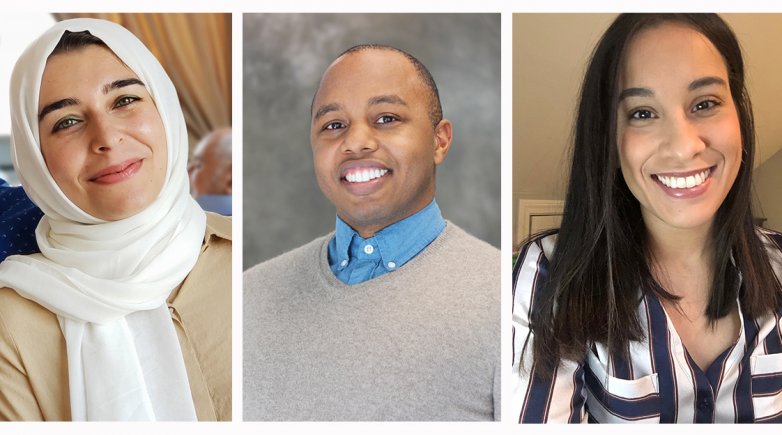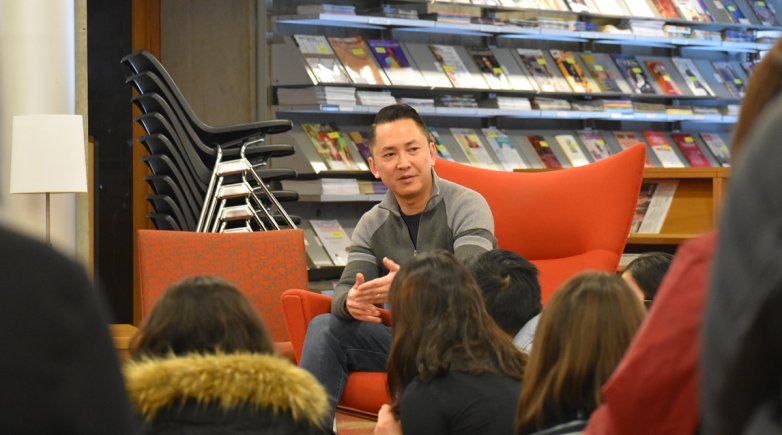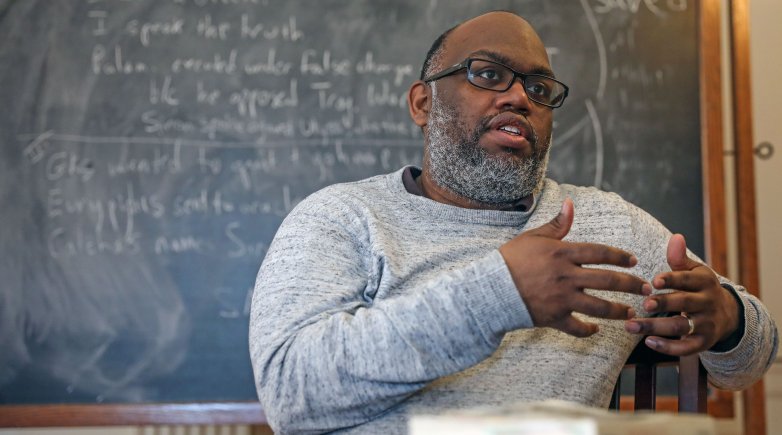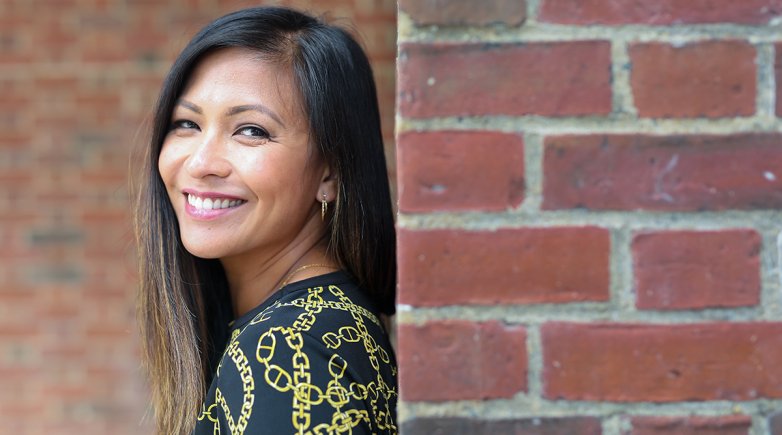Scholars in residence
The 2020-21 John and Elizabeth Phillips Dissertation Year Fellows (l to r): Joud Alkorani, Sherard Harrington and Katherine Morales.
At the start of the academic year, the Academy named three doctoral candidates as the 2020-21 John and Elizabeth Phillips Dissertation Year Fellows. Established in 2013, the fellowship program was created to support Ph.D. candidates in the completion stage of their dissertation. Specifically calling for candidates who are traditionally underrepresented in the graduate school environment, the Fellowship Committee also seeks applicants who express an interest in becoming part of an independent secondary school.
In alignment with the Academy’s mission and work around diversity, equity and inclusion, the 2020-21 fellowship selection process gave priority consideration to scholars researching topics related to race, identity and culture. In addition to their dissertation work, the Fellows deliver two online seminars to students per term and engage in discussions with any students or groups interested in their fields of study.
The three appointees represent a broad range of academic research, and their membership in the Exeter community this year promises to enrich dialogues across disciplines.
Joud Alkorani holds an M.A. in Middle Eastern and Islamic Studies from the University of Toronto, where she is completing her doctorate in the Department for the Study of Religion and the Center for Diaspora and Transnational Studies. She was drawn to the fellowship by the opportunity to share intellectual discourse with a new audience — Exeter students. “I’m excited by the possibilities that arise from exploring these questions alongside Exeter’s talented students,” Joud shared, “by what I can learn from them and by the insights that arise from doing so during such a charged moment in our world’s history.” Her dissertation, Between Fate and Fortune: Islam, Neoliberalism, and Destiny in Dubai, explores the relationship between Islam and neoliberalism in narratives of middle-class migrant Muslim women in Dubai, examining how the city transfigures Muslims’ subjectivities.
Sherard Harrington is completing his doctor-ate in English Literature at the University of New Hampshire. His dissertation, Othered Ambitions: The Conflation of Villainy, Non-Heterosexuality, and Race in Popular Culture, focuses on the vilification of sexual orientation and race in 20th-century literature, graphic novels, plays and television. It builds on the work he did earning his MFA in creative writing from the University of Central Florida, where he wrote a collection of short stories and essays about coming out of the closet in a military family while overseas and in the South. Harrington has also pursued a research project in Massachusetts to uncover the histories of indigenous and African peoples who lived and fought for their rights in the Commonwealth.
A graduate of Choate Rosemary Hall, Katherine Morales is already familiar with the unique opportunity of learning at a school like Exeter. “I have always had a love for the boarding school experience. As I learned about the fellowship, I was drawn to the opportunity to teach, mentor and share my academic knowledge with students,” she said. Her master’s degree, earned at the University of Maryland, College Park, examined the relationship between therapists’ perceived cultural humility and the outcomes of psychotherapy. Her dissertation — A Mixed-Method Study: Client Perspective of Therapists’ Missed Cultural Opportunities and Its Effect on Working Alliance and Client Session Satisfaction— also addresses how race, ethnicity and culture affect the outcomes of counseling, examining client experiences in which therapists missed opportunities to acknowledge clients’ cultural back-grounds. Her goal is to develop interventions that address disparities in treatment outcomes for minority clients and to improve multicultural competencies.
The Dissertation Year fellowship is part of a larger program at the Academy to attract scholars and educators who are traditionally underrepresented in the secondary school environment. Since 1998, the John and Elizabeth Phillips Fellowship program has appointed 27 individuals to Exeter’s faculty. These appointments are a one-, two- or three-year commitment, and several instructors have accepted an invitation to stay on after their fellowship concludes.
Editor's note: This article first appeared in the winter 2021 issue of The Exeter Bulletin.



